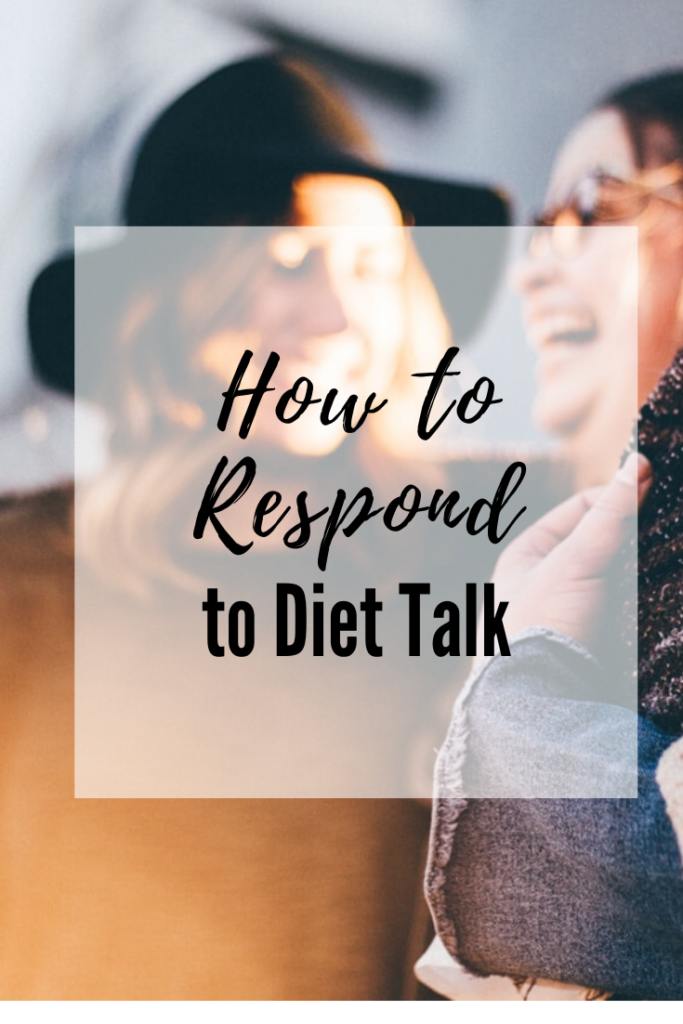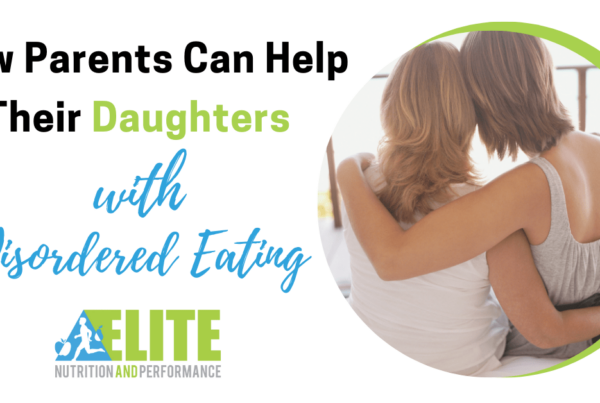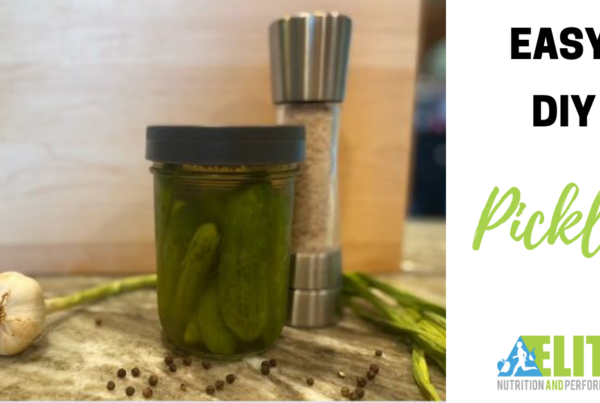A topic that keeps coming up with my clients this month: how to respond to diet talk and conversations about dieting, weight and health. January is *the* height of diet culture – we often jokingly call it “National Dieting Month”. Whether you’re working on improving your relationship with food, challenging yourself to not start a new restrictive diet this year, or your resolution is say ‘bye’ to diet culture, we can all use some extra support in navigating food, weight and diet talk.
January is a tough month. We see a huge spike in ads for new gym memberships, quick-fix diet programs and reminders from every industry that we should be trying to lose weight and “fix” our bodies. This is often under the guise of being “healthy”…even when it’s still clearly marketing a diet and weight loss. Diet culture is in full swing and for many clients, our conversations over the past month have circled around how to navigate diet talk in the New Year, and all year round.
So today I wanted to break down common situations where diet culture may come into play and how you can respond to diet talk in these scenarios. You can also check out our post How to Explain Intuitive Eating to a Friend for other ideas.
A few helpful reminders:
When you find yourself in a diet/food/weight-talk situation and you’re not sure what to say, remember that:
- You’re not always going to have the ‘perfect’ thing to say.
- You don’t need to always (or ever) have your anti-diet culture advocacy hat on.
- You don’t need to always share why exactly you don’t want to talk about diets or weight or workouts.
- You don’t need to get into conversations about weight and health to be making a difference or standing up to diet culture.
- You’re allowed to take a break and not say anything.
- You’re allowed to say the “wrong” thing.
- You’re allowed to have boundaries around how much you share about your recovery, relationship with food, your body and your own experiences.
This guide is meant to serve as inspiration, give some tools and sample responses and ultimately allow you to feel more comfortable when you do find yourself in a conversation that you want to better navigate.
How to Respond to Diet Talk:
At Social Events
Cocktail Party/Mixer: The conversation is light and you might be meeting a lot of new people or acquaintances, so diet talk is bound to be as popular as the crab cakes.
- When someone starts talking about their own diet/exercise plan…and won’t stop
-
- Response: “That actually makes me think of this amazing documentary I saw about this rock climber in Yosemite. I’ve been wanting to visit _________ have you ever been?”
- Response: “It has been so nice talking with you, I just saw someone come in who I’ve been meaning to say ‘hi’ to.”
- Response: “I actually made a new year’s resolution to always talk about something new at parties – don’t you feel like we always talk about diets?! Have you read any good books recently?”
- Response: Just leave – “Excuse me I need to run to the restroom.”
-
In Passing
For situations when someone who you don’t know well or are having a short interaction with, like a cashier, an Uber driver, a front desk attendant, etc. This might not be a situation where you’re in a place to really prepare yourself or want to elaborate, but having a few ideas of phrases to exit or move on in the conversation can be helpful.
- When someone makes a comment about your body, food or dieting
- Cashier at grocery store: “Oh we’re being bad aren’t we?”
- Response: “Imagine if eating Skittles made us ‘bad’? I’m not stealing them, right?”
- Response: “Hey, there’s no problem with eating things that taste good!”
- Response: “Those comments actually make me uncomfortable. I’d appreciate if you didn’t say that to me.”
- Cashier at grocery store: “Oh we’re being bad aren’t we?”
- When someone makes a comment about compensating for what you have or will eat
- Someone passing you at the gym or walking “Making up for those weekend cheat meals, huh?”
- Response: “That’s not how bodies work, there’s no need to have to make up for what I eat.”
- Response: “Please don’t comment on my body or exercise.”
- Response: *Ignore and walk away*
- Someone passing you at the gym or walking “Making up for those weekend cheat meals, huh?”
In the gym
Unfortunately, it’s common for fitness classes and gyms to be a hub for body/diet/weight talk. To avoid this, you can start to find non-diet, body-positive gym spaces, and in the meantime practice some responses in case it does come up.
- Some things you can say at the front desk if you see, hear or notice negative, unwanted or shaming comments
-
- Response: “Hey, I really enjoy your workouts and space, you might want to consider talking to your instructors about the language they use during class. Some of their comments aren’t actually that helpful and are a real turn-off for me and others wanting to workout here. Here’s a good blog post explaining more.”
- Response: “I wish you guys weren’t hosting this challenge. I love your trainers and philosophy here, but this _______ challenge feels like it goes against what you normally talk about. I like moving because it feels good and I feel stronger, not because I want to feel like I need to be smaller.”
- Response: “Hey ______, I really like your class and normally feel so motivated during it. I noticed today you said something about earning our dessert tonight. That was really triggering to me and I’m sure some other people who come to and love your classes too. I just wanted to let you know. I come to your class because I normally love your message, but I don’t like to mix my exercise with earning food – it doesn’t make me feel good.”
- Response: “I’ve actually been working out because of how it makes me feel, not to try and change my body. It has been SO freeing with my relationship with food, and my mental and physical health!”
- Response: “I don’t want to talk about diets/weight.”
-
At a Restaurant
If you get comments about food or dieting while out to eat, here are some ideas of what to say. Remember, you always have the right to eat food you like in a satisfying amount. Diet talk and diet culture don’t get to keep you from fun and tasty meals!
- If a waiter says something along the lines of:
-
- “Oh, calories don’t count today, do they?!”
- Response: “Actually, I don’t count calories and I order what I want. I’ll have ____________.”
- “We’re being bad today, aren’t we?!”
- Response: “Bad? For ordering food? Why would that be bad?”
- Response: “The only thing bad would be if I get hangry from trying to not order what I want.”
- “Oh, calories don’t count today, do they?!”
-
- Friends over a meal:
-
- “Oh come on, this was expensive! Have the rest of it.”
- Response: “I’m satisfied, thank you though! Maybe we can take it to go?”
- “Did I tell you about my co-worker’s new diet? She does……”
- Response: “I’d rather talk about something other than diets, what’s the best meal you’ve ever had?”
- Response: “I really like talking to you but I prefer to talk about topics other than weight and dieting. Have you seen *X new movie*?”
- “Oh come on, this was expensive! Have the rest of it.”
-
- On a date:
- “Do you want the rest of this?” (If you’re not hungry for more)
- Response: “It was so delicious! I’m full though, thank you. You can have that piece!”
- Response: “I’m pretty satisfied, but why don’t we take it to go?”
- “That’s all you’re eating?”
- Response: “It’s so good, but I’m starting to feel full. Do you want some of it?”
- Response: “Don’t worry, I’ll tell you if I’m still hungry. But right now this is good for me!”
- “Do you want anything else?”/”Are you all done?” (If you’re still hungry)
- Response: “I am, do you think you want to (a) stop by this other place, they have the best ________. (b) order another appetizer to split? (c) walk through the park after this and if we’re hungry we can stop by _________ to grab something.”
- “So, are you on any sort of a diet?” (This would be sort of a strange question but comes up)
- Response: “I’m actually working on my relationship with food so I’ve been eating all the things! It’s been cool, sometimes talking about diets all the time can be draining.”
- Response: “I’m actually working on not dieting – have you ever heard of intuitive eating?”
- Response: “No! I used to do them all but I ended up feeling like it made me more obsessed around food. I’ve been trying to listen to my body more to find out what foods I actually like and feel good to me, instead of following a specific diet.”
- “Do you want the rest of this?” (If you’re not hungry for more)
At Family Events
- Parties, events and vacations that may bring up diet and weight talk:
- “Wow, you’ve lost so much weight since the last time we saw you!”
- Response: “I promise we have more interesting things to catch up on than my weight, let me tell you about this new club I joined!”
- Response: “I’m so happy to see you but this year I’m really working on not talking about weight – mine or anyone else’s. Tell me how have you and the family been?”
- Response: “I know I used to talk about diets and weight with you but I’ve recently realized it makes me feel pretty anxious. Let’s talk about something else. How was that trip to Florida you just took?”
- “Wow, you’ve lost so much weight since the last time we saw you!”
What are some phrases you’ve found helpful in navigating and responding to diet talk?
Interested in diving deeper into intuitive eating and making peace with food?
Schedule your complimentary discovery call! You’ll work 1-on-1 with a non-diet dietitian to heal your relationship with food, navigate diet talk, improve your body image, and rediscover the joy of eating.








